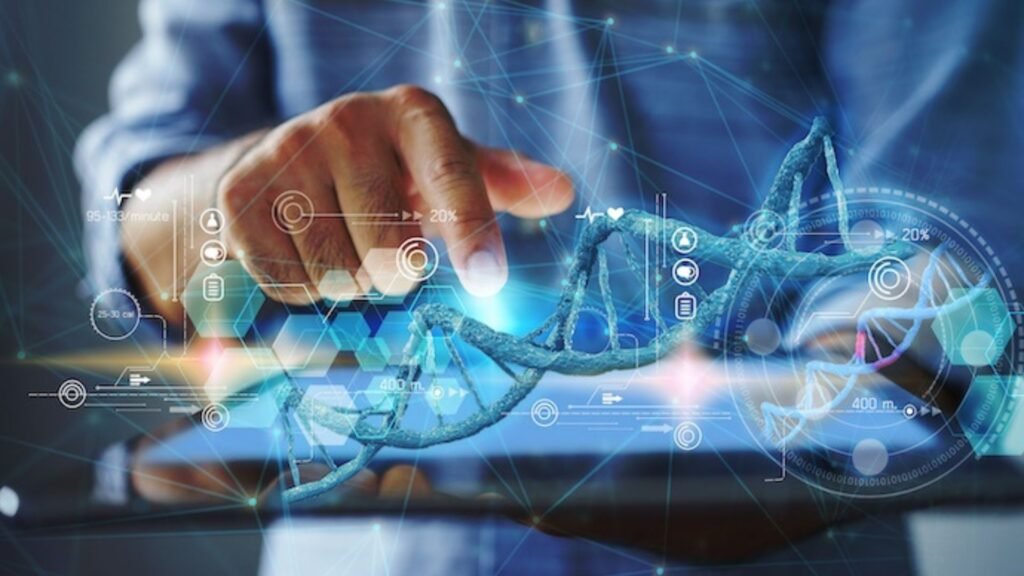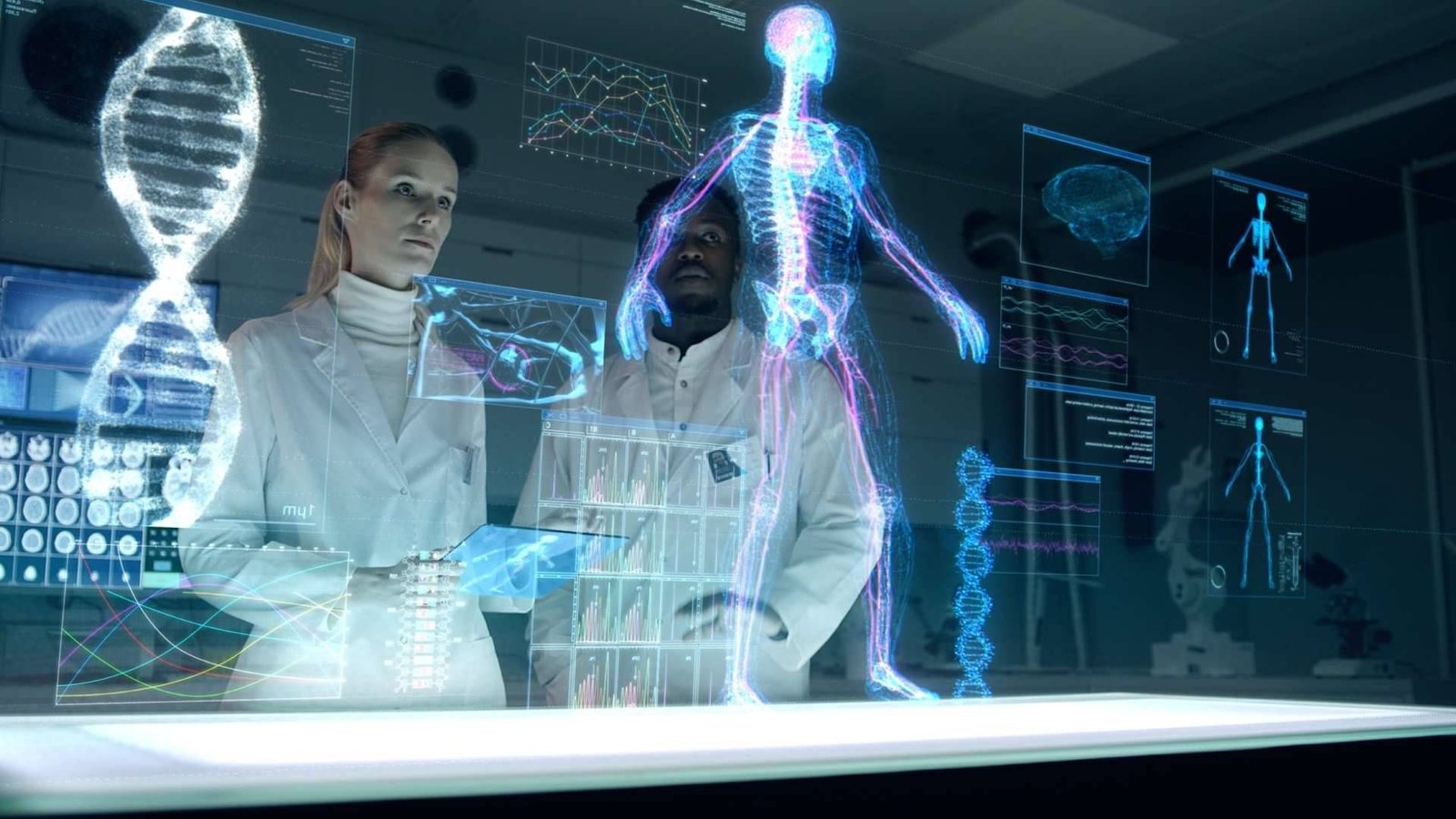Biotechnology The Future of Medicine
Biotechnology is transforming the field of medicine by harnessing the power of biological systems and organisms to develop innovative treatments and therapies. From personalized medicine to gene editing, biotechnology is paving the way for groundbreaking advancements in healthcare. In this article, we’ll explore how biotechnology is shaping the future of medicine and the key innovations driving this revolution.

What is Biotechnology?
Biotechnology involves using biological processes and organisms to create products and technologies that benefit human health. It combines principles from biology, chemistry, and technology to develop new medical solutions.
- Core Areas of Biotechnology:
- Genetic Engineering: Manipulating genes to treat or prevent diseases.
- Cell Therapy: Using living cells to replace or repair damaged tissues and organs.
- Biopharmaceuticals: Developing drugs and vaccines from biological sources.
Personalized Medicine
Personalized medicine tailors treatments to individual patients based on their genetic makeup, lifestyle, and health conditions. This approach enhances the effectiveness of treatments and minimizes side effects.
- Personalized Medicine Innovations:
- Genomic Sequencing: Analyzing a patient’s DNA to identify genetic mutations and predict disease risk.
- Pharmacogenomics: Studying how genes affect a person’s response to medications to customize drug therapies.
- Targeted Therapies: Developing drugs that specifically target genetic mutations or biomarkers associated with certain diseases.
Gene Editing Technologies
Gene editing technologies, such as CRISPR-Cas9, allow scientists to make precise changes to the DNA of living organisms. These advancements hold promise for treating genetic disorders and improving human health.
- Applications of Gene Editing:
- Disease Treatment: Correcting genetic mutations that cause diseases like cystic fibrosis and muscular dystrophy.
- Cancer Therapy: Editing immune cells to enhance their ability to target and destroy cancer cells.
- Agricultural Biotechnology: Improving crop resistance and nutrition through gene editing.
Stem Cell Therapy
It involves using stem cells to regenerate damaged tissues and treat a variety of medical conditions. Stem cells have the unique ability to develop into different types of cells in the body.
- Types of Stem Cell Therapy:
- Embryonic Stem Cells: Derived from early-stage embryos and capable of developing into any cell type.
- Adult Stem Cells: Found in various tissues and used to repair and regenerate damaged tissues.
- Induced Pluripotent Stem Cells (iPSCs): Adult cells reprogrammed to behave like embryonic stem cells, offering a source for personalized treatments.
Biopharmaceuticals and Vaccines
Biopharmaceuticals are drugs produced using living organisms, such as bacteria or yeast. They include a wide range of products, including vaccines and therapeutic proteins.
- Biopharmaceutical Innovations:
- Monoclonal Antibodies: Laboratory-made antibodies designed to target specific proteins or cells, used to treat diseases like cancer and autoimmune disorders.
- Recombinant Proteins: Proteins produced through genetic engineering to treat conditions like diabetes and hemophilia.
- mRNA Vaccines: A new type of vaccine that uses messenger RNA to instruct cells to produce a protein that triggers an immune response, exemplified by COVID-19 vaccines.
Diagnostic Technologies
Biotechnology is advancing diagnostic technologies, enabling earlier and more accurate detection of diseases. Early diagnosis is crucial for effective treatment and improved patient outcomes.
- Diagnostic Innovations:
- Liquid Biopsies: Non-invasive tests that detect cancer-related biomarkers in blood samples, allowing for early detection and monitoring of cancer.
- Genetic Testing: Identifying genetic predispositions to diseases and guiding preventive measures and treatment options.
- Wearable Health Devices: Technology that continuously monitors health metrics, such as glucose levels and heart rate, providing real-time data for better disease management.
Regenerative Medicine
Regenerative medicine focuses on repairing or replacing damaged tissues and organs to restore normal function. This field encompasses a range of techniques, including tissue engineering and organ transplantation.
- Regenerative Medicine Techniques:
- Tissue Engineering: Creating new tissues or organs using a combination of cells, biomaterials, and growth factors.
- 3D Bioprinting: Printing biological tissues and organs layer by layer using specialized printers.
- Organ Transplantation: Advancements in organ transplantation techniques and immunosuppressive drugs to improve graft survival and function.
Ethical Considerations and Challenges
As biotechnology continues to advance, it raises important ethical and regulatory considerations.
- Ethical Issues:
- Genetic Modification: Concerns about the long-term effects and ethical implications of modifying human genes.
- Privacy: Protecting patient genetic and health data from unauthorized access and misuse.
- Access and Equity: Ensuring equitable access to advanced biotechnological treatments and therapies for all patients.
Conclusion
Biotechnology is at the forefront of transforming medicine, offering innovative solutions for personalized treatment, disease management, and regenerative therapies. With advancements in gene editing, stem cell therapy, biopharmaceuticals, and diagnostic technologies, the future of medicine looks promising. As we continue to explore and develop these technologies, it is essential to address ethical and regulatory challenges to ensure that the benefits of biotechnology are accessible and equitable for all.



